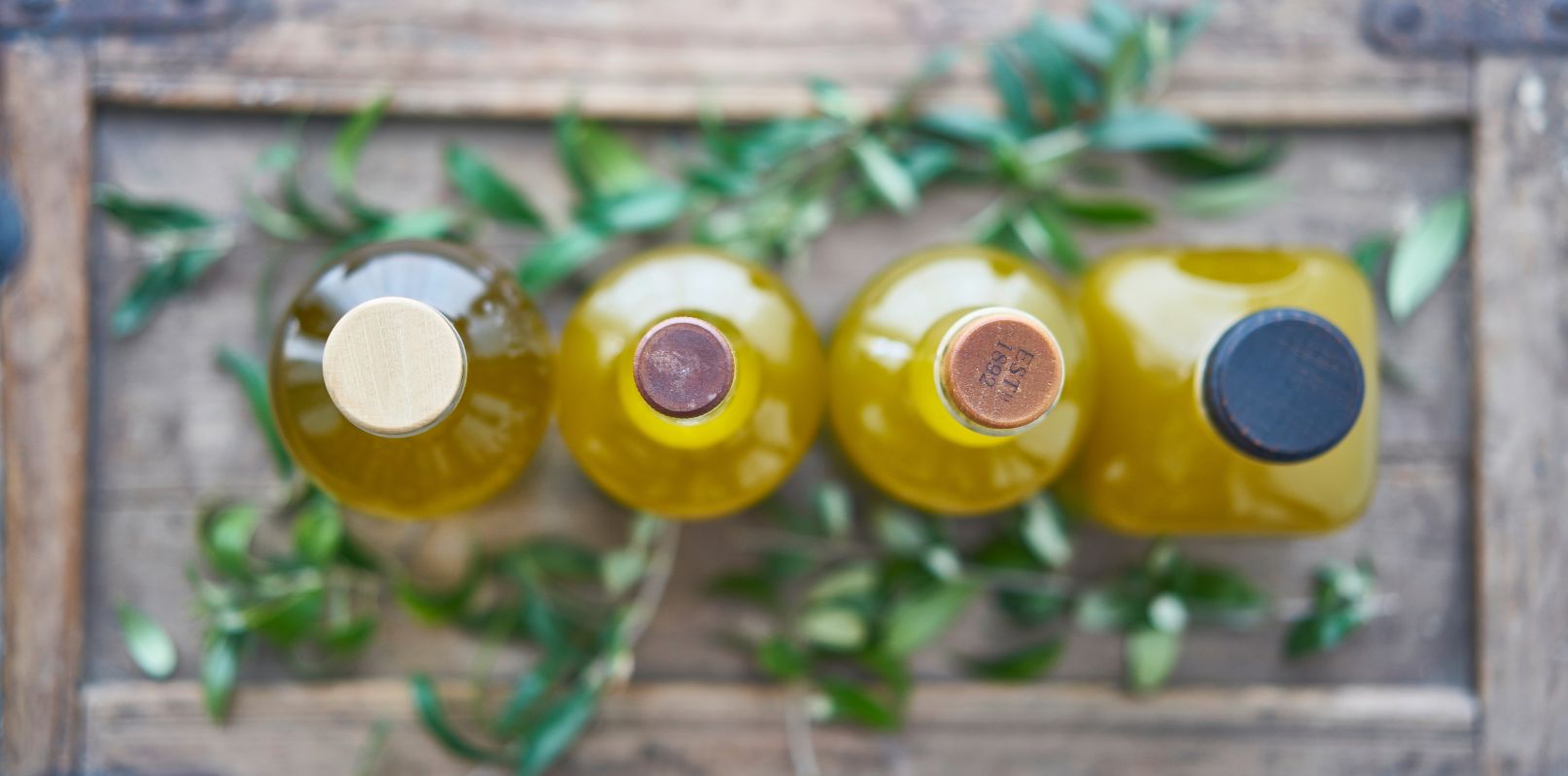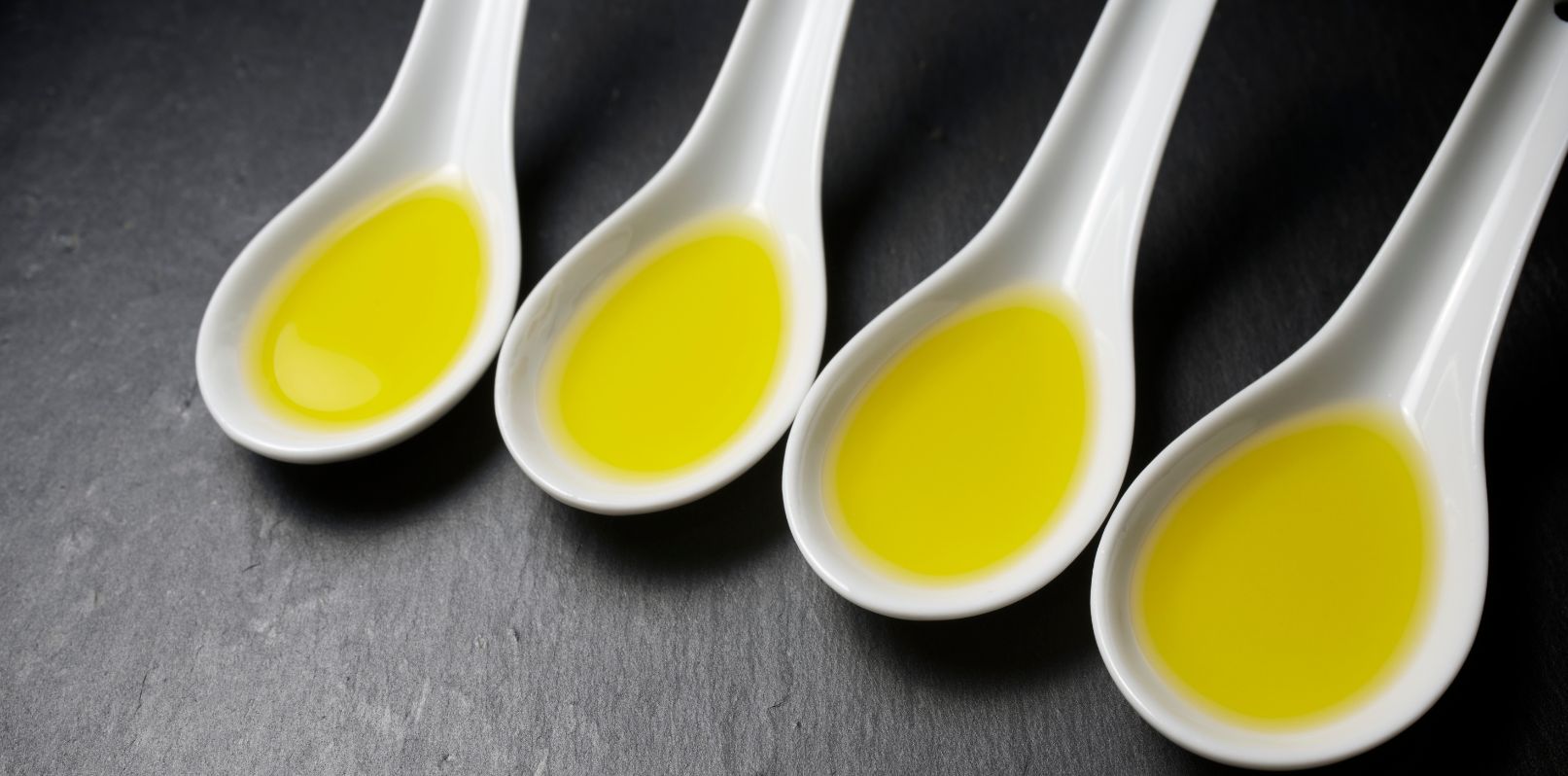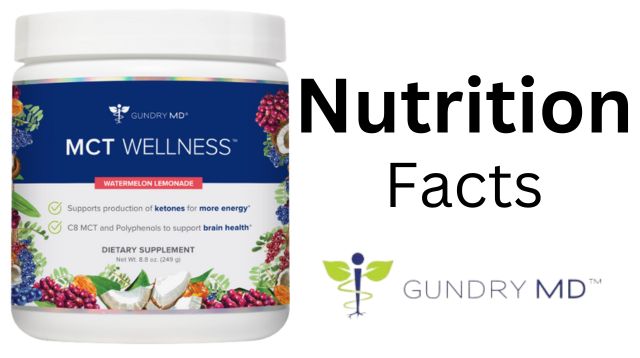MCT Oil vs Olive Oil: Which is Best for You? A Complete Breakdown

What Is MCT Oil?

MCT oil is a beneficial type of fat often derived from coconut oil. Rich in medium-chain triglyceride fatty acids, MCT oil stands out due to its easy digestibility and rapid absorption by the body. This is thanks to its smaller molecules.
MCT oil is more concentrated than coconut oil. It contains 100% MCTs, compared to around 50% in coconut oil. It also contains only the most potent MCTs from coconut oil – caprylic acid (C8) and capric acid (C10), or just C8.1
It also doesn’t act like a traditional “unhealthy” saturated fat, because medium-chain saturated fats behave differently in the body.2
You can also buy MCT oil as a powder, which can be a more convenient form of MCT oil.
What Is Olive Oil?
Olive oil is a versatile cooking liquid extracted from olives, offering a rich flavor and distinct aroma. Extra Virgin Olive Oil (EVOO) is the most revered type of olive oil, as it’s processed without high heat or chemical solvents. This protects natural chemicals in the oil called phenols, which are known for their antioxidant abilities.3
Olive oil is a Long Chain Triglyceride (LCT) that’s packed with monounsaturated fatty acids – about 75% by volume – which helps promote some truly excellent potential health benefits.4
Potential Benefits Of MCT Oil
1. MCT Oil Might Help Support Healthy Blood Sugar Levels
A key potential benefit of MCT oil is that it may help support blood sugar levels already in a normal healthy range.5
One small study examined how those who consumed MCT oil daily saw reductions in body weight, waist circumference, and blood sugar levels. This was compared to those with a similar caloric diet containing long-chain triglycerides, or LCTs.6
2. MCT Oil Might Help Support Healthy Brain Function
MCT oil has shown some intriguing potential benefits for the brain.
For example, MCT oil has the ability to stimulate the production of ketones – highly efficient energy sources for the brain. Ketones have shown an ability to help support brain health in people of all ages.7,8
Plus, MCT oil has also shown potential neuroprotective properties. In other words, it might help to protect the brain.9
Because MCTs can be converted into ketones, they may also provide more efficient energy to the brain, which could help support better focus, concentration, and mental clarity.10
3. MCT Oil Might Help Support Weight Loss Goals
MCT oil could be an effective tool in weight management for multiple reasons:
- Clinical studies suggest that consuming MCTs can lead to greater energy expenditure than the consumption of LCTs. This could be helpful for weight management.11
- As MCTs travel quickly into the bloodstream, they may be less frequently stored as fat compared with other oils. MCTs can help enhance ketone production, and ketones burn fats. They’re usually formed when there’s not enough sugar or glucose for the body’s fuel needs.12-14
- Increased ketone production may help some people to feel less hungry.15
- When MCT oil is taken, it’s shown to have a high burn rate in the body. This may help boost the number of calories burned after meals.16
- MCTs have unique metabolic properties which have led researchers to describe them as “ketogenic” even without carbohydrate restriction. This effect has predominantly been shown by the MCT known as caprylic acid (C8).17
Potential Benefits Of Olive Oil

1. Olive Oil Might Help Protect Heart Health
For decades, researchers have been studying the “Mediterranean diet” since discovering that heart illness seemed to be less common in Mediterranean nations. One of the most key ingredients in this diet is extra virgin olive oil.18
Today, one major study found that consuming more than half a tablespoon of olive oil a day may indeed help to promote heart health. In fact, several studies have also found this correlation. This is why olive oil is often hailed as being very beneficial for the heart.19
One study found that an olive oil diet helped significantly lower resting blood pressure levels compared to a polyunsaturated fat oil (sunflower oil) diet.20
Olive oil has the highest percentage of monounsaturated fat of any plant oil, and it appears to help protect the heart due to:
- An ability to lower "bad" LDL cholesterol and increase "good" HDL cholesterol
- Being able to keep blood pressure within a healthy range
- Potent antioxidants that fight cell damaging free-radicals21
2. Olive Oil Might Help Support Weight Management
You likely know that eating excessive fats can cause weight gain. However, this is where an olive-oil-rich Mediterranean diet also shines.
One study of 7,000 Spanish students over a period of more than two years showed that consuming a lot of olive oil did not affect weight gain.22
Another study over three years found that an olive-oil-enriched diet was linked to increased antioxidant levels in the blood as well as a reduction in weight.23
3. Olive Oil Might Help Protect Brain Health
Olive oil may also have positive effects on the brain. In a recent study, subjects were given three tablespoons of olive oil per day for six months.24
The results showed that olive oil helped support healthy cognitive function and overall brain health. Interestingly, both extra virgin olive oil AND refined olive oil appeared to show positive results.25
4. Olive Oil Might Help Support Healthy Blood Sugars
Just as with MCT oil, olive oil has also shown some positive outcomes helping to support healthy blood sugar levels.
Several studies have linked olive oil to beneficial effects on blood sugar. One such clinical trial followed over 400 healthy people over four years. Some were assigned a Mediterranean diet rich in olive oil (one liter, or 34 fl. oz per week), while others followed either a low-fat diet or one rich in nuts. The results showed that subjects who followed the olive oil-supplemented diet and the nut diet had much healthier blood sugar levels overall.26
MCT Oil Vs. Olive Oil: A Complete Breakdown
1. MCT Oil Vs Olive Oil: Basic Nutritional Info
Let’s first compare the basic nutritional properties of MCT Oil in comparison to olive oil.
MCT Oil:
- MCT oil contains fast-acting MCTs, typically a blend of caprylic acid (C8) and capric acid (C10), or just C8.27
- MCTs are classified as saturated fat but don’t act like traditional “unhealthy” saturated fat because they’re more rapidly metabolized.28
Olive Oil:
- Olive oil is packed full of monounsaturated fatty acids – about 75% by volume.29
- Olive oil also contains some calcium, iron, potassium, vitamin E, and vitamin K.30
2. MCT Oil Vs Olive Oil: Calorie Content
When it comes to the calorie and fat content of MCT and olive oil, they’re basically identical.
MCT Oil:
- Calories: One tablespoon of MCT oil contains approximately 120 calories.
- Fat: MCT oil has around 14 grams of fat per tablespoon.31
Olive Oil:
- Calories: The average tablespoon of olive oil offers around 119 calories. Fat: Olive oil has around 13.5 grams of fat per tablespoon.32
3. MCT Oil Vs Avocado Oil: Medium-Chain Triglycerides Vs Long-Chain Triglycerides
Medium-chain triglycerides (MCTs) are fats with a chain length of 6-12 carbon atoms. They're utilized differently by the body – more quickly absorbed and converted into potential energy – than long-chain triglycerides (13-21 carbon atoms), such as those found in olive oil.33
Although LCTs are processed a little more slowly, they still have very unique and potentially beneficial health properties, as you’ve learned.
How To Incorporate MCT Oil And Olive Oil Into Your Diet
Both olive oil and MCT oil can be simply incorporated into your daily diet. Let’s take a look at some ideas.
MCT Oil
To incorporate a serving of MCT oil or MCT oil powder daily:
- Add: to coffee for a deliciously frothy, creamy texture.
- Add: to your favorite smoothie or protein shake recipe.
- Mix: with water for a quick energy shot.
- Drizzle: over roasted vegetables or grilled meats.
It's always a good idea to start off with a smaller amount of MCT oil or MCT oil powder, then gradually increase to the full recommended dosage as your body becomes better accustomed to it.
Olive Oil
Here's how to add more of those heart-healthy monounsaturated fatty acids to your diet:
- Mix: into salad dressings as your base oil of choice.
- Swirl: into creamy soups.
- Drizzle: onto cooked meats or fish.
- Drizzle: over homemade hummus or sliced avocado.
- Drizzle: over roasted vegetables, then bake.
- Drizzle: onto steamed or roasted veggies.
- Drizzle: over cooked eggs.
MCT Oil Vs Olive Oil: Which Oil Is Best For You?

Both MCT oil and olive oil should be appreciated for their individual potential health benefits and purposes. They’re compatible with each other, and there is no need to choose between the two.
MCT oil, with its high medium-chain triglyceride content, tends to have less daily uses, as it’s a more expensive, concentrated oil in comparison to olive oil. But, that means it can be used more deliberately. Olive oil, on the other hand, can easily be drizzled over anything and everything throughout the day.
Enjoy using both oils for different needs throughout the day – whether supplementary or for cooking.
And, as with any dietary change, you should seek the advice of your medical practitioner for the most beneficial oil for you.
Sources- https://www.healthline.com/nutrition/mct-oil-vs-coconut-oil#mc-ts
- https://www.health.harvard.edu/blog/is-there-a-place-for-coconut-oil-in-a-healthy-diet-2019011415764
- https://www.health.harvard.edu/nutrition/is-extra-virgin-olive-oil-extra-healthy
- https://www.health.harvard.edu/nutrition/is-extra-virgin-olive-oil-extra-healthy
- https://pubmed.ncbi.nlm.nih.gov/1568535/
- https://pubmed.ncbi.nlm.nih.gov/17570262/
- https://alz-journals.onlinelibrary.wiley.com/doi/abs/10.1002/alz.055702
- https://pubmed.ncbi.nlm.nih.gov/33220329/
- https://www.frontiersin.org/articles/10.3389/fneur.2023.1123290/full
- https://www.ncbi.nlm.nih.gov/pmc/articles/PMC4669977/
- https://pubmed.ncbi.nlm.nih.gov/18326600/
- https://www.healthline.com/nutrition/mct-oil-101#:~:text=Since%20the%20MCT%20is%20digested,eventually%20be%20stored%20as%20fat.
- https://dtc.ucsf.edu/types-of-diabetes/type2/understanding-type-2-diabetes/how-the-body-processes-sugar/ketones/#:~:text=Ketones%20and%20ketoacids%20are%20alternative,and%20during%20dieting%20or%20fasting.
- https://www.frontiersin.org/articles/10.3389/fnut.2021.747284/full
- https://www.ncbi.nlm.nih.gov/pmc/articles/PMC5813183/#:~:text=Conclusions,hunger%2C%20and%20desire%20to%20eat.
- https://pubmed.ncbi.nlm.nih.gov/2021124/
- https://www.ncbi.nlm.nih.gov/pmc/articles/PMC7175812/
- https://www.heart.org/en/news/2022/09/28/the-benefits-of-adding-a-drizzle-of-olive-oil-to-your-diet
- https://www.heart.org/en/news/2022/09/28/the-benefits-of-adding-a-drizzle-of-olive-oil-to-your-diet
- https://pubmed.ncbi.nlm.nih.gov/10737284/
- https://www.heart.org/en/news/2022/09/28/the-benefits-of-adding-a-drizzle-of-olive-oil-to-your-diet
- https://pubmed.ncbi.nlm.nih.gov/16711599/
- https://pubmed.ncbi.nlm.nih.gov/19707219/
- https://ocm.auburn.edu/newsroom/news_articles/2023/03/060903-olive-oil-research.php
- https://ocm.auburn.edu/newsroom/news_articles/2023/03/060903-olive-oil-research.php
- https://pubmed.ncbi.nlm.nih.gov/20929998/
- https://www.ncbi.nlm.nih.gov/pmc/articles/PMC4882694/
- https://www.healthline.com/nutrition/saturated-fat-types#TOC_TITLE_HDR_8
- https://www.health.harvard.edu/nutrition/is-extra-virgin-olive-oil-extra-healthy
- https://fdc.nal.usda.gov/fdc-app.html#/food-details/171413/nutrients
- https://www.nestlehealthscience.ca/en/brands/mct-oil/mct-oil
- https://fdc.nal.usda.gov/fdc-app.html#/food-details/171413/nutrients
- https://med.virginia.edu/ginutrition%20/wp-content/uploads/sites/199/2014/06/Parrish-February-17.pdf
Related posts


